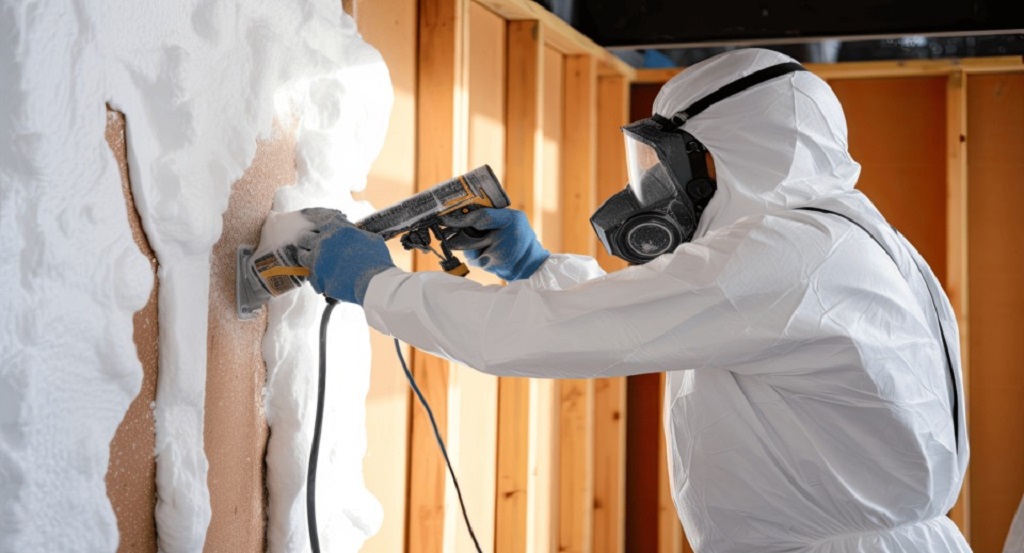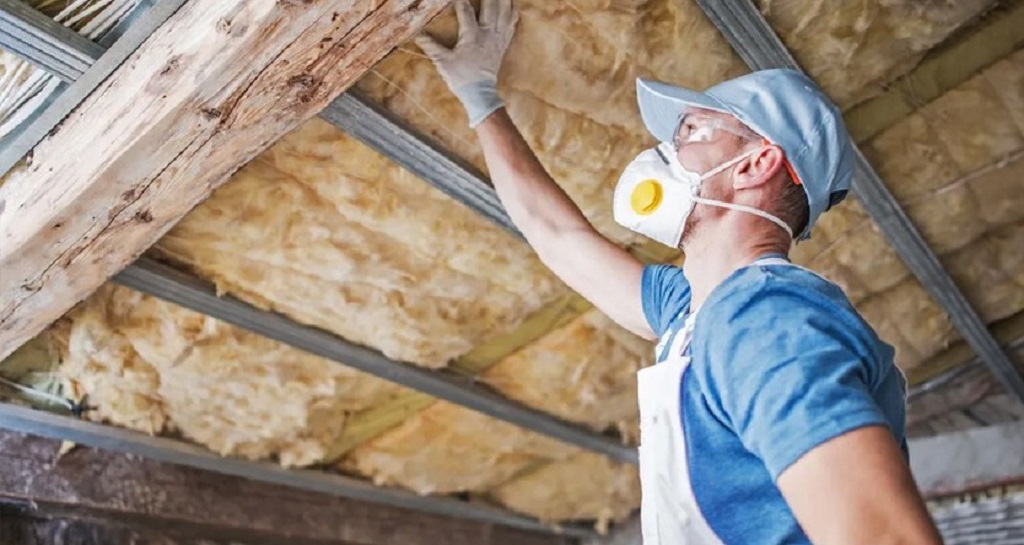When thinking about home improvements, insulation might not be the first thing that comes to mind. However, it plays a pivotal role in ensuring a healthier and more comfortable living environment. High-quality insulation is more than just a barrier to extreme temperatures; it actively contributes to better indoor air quality and enhanced comfort in ways you might not expect. Let’s explore the ten ways insulation can improve your home’s environment, along with frequently asked questions to help you make informed decisions.
Reduces Air Leaks and Drafts
Insulation prevents unwanted air from infiltrating your home by sealing gaps and cracks. Drafts can introduce outdoor pollutants such as dust, pollen, and vehicle emissions into your living space. Properly insulated walls, attics, and floors ensure that air from outside doesn’t disrupt the quality of indoor air or your home’s temperature stability.
By keeping unconditioned air out, insulation reduces your exposure to allergens and pollutants, improving the air you breathe daily.
Controls Humidity Levels
Humidity is a common culprit behind mold growth and respiratory issues. Insulation helps regulate humidity by minimizing the movement of moist air through walls and ceilings. Vapor barriers and specialized insulation materials can prevent water vapor from accumulating, reducing the chances of mold and mildew forming in hidden spaces.
Maintaining optimal humidity levels also makes your home feel more comfortable, especially during humid summers or dry winters.
Filters Airborne Contaminants
Certain types of insulation, like spray foam or dense fiberglass, act as a filter that traps airborne contaminants. While insulation isn’t a replacement for air purifiers, it can significantly reduce the circulation of harmful particles that might otherwise enter through walls or poorly sealed windows.
This can be especially beneficial for individuals with allergies or asthma, as insulation reduces exposure to irritants like dust and pollen.
Enhances Ventilation Efficiency
A well-insulated home complements a balanced ventilation system. By preventing outdoor air infiltration and minimizing energy loss, insulation allows HVAC systems to operate more efficiently. Fresh air is properly circulated and conditioned without contamination from unfiltered external air.
The result is a more effective ventilation system that works hand-in-hand with insulation to maintain a healthy and fresh indoor environment.
Reduces Noise Pollution
Noise is an often-overlooked aspect of comfort. Insulation materials such as cellulose or acoustic foam can significantly dampen sound transmission between rooms or from the outside. A quieter home environment contributes to relaxation, better sleep, and reduced stress levels.
The reduced noise pollution doesn’t just make your home more comfortable—it also creates an atmosphere conducive to mental well-being.
Read More Also: What Are the Items for Decorating a House?
Prevents Indoor Pollutants
By sealing gaps, insulation keeps indoor pollutants like radon and carbon monoxide from entering through cracks in the foundation or poorly insulated areas. These gases can pose severe health risks, and controlling their entry is crucial for safety.
Insulation also discourages pests, which can bring allergens like dander and droppings into your home. Sealing gaps eliminates pathways for these unwanted guests, further improving indoor air quality.
Promotes Consistent Indoor Temperatures
Uneven temperatures in a home can create discomfort and encourage the growth of mold or bacteria in poorly ventilated areas. Insulation ensures that rooms maintain consistent temperatures by reducing heat transfer. This consistency reduces energy demands while providing a stable and comfortable environment.
Temperature uniformity is particularly beneficial in multi-story homes, where insulation can help balance heat levels across floors.
Supports Energy-Efficient HVAC Systems
A home with excellent insulation reduces strain on heating, ventilation, and air conditioning (HVAC) systems. Since less energy is required to maintain desired indoor temperatures, HVAC systems operate more efficiently and last longer.
An efficient HVAC system improves comfort by better regulating air quality and temperature, minimizing sudden spikes or drops.
Increases Thermal Comfort
Insulation not only keeps your home warm in the winter but also cool in the summer by reducing thermal bridging. Thermal comfort refers to the sensation of feeling neither too hot nor too cold—a key factor in a comfortable living space.
By minimizing the need for constant adjustments to heating or cooling systems, insulation allows you to enjoy a consistent indoor climate.
Provides Long-Term Value
Finally, insulation offers long-term benefits that contribute to a healthier and more comfortable lifestyle. Its ability to reduce energy bills, improve air quality, and enhance comfort makes it an essential investment for any homeowner. Additionally, modern insulation materials are environmentally friendly, contributing to a sustainable living environment.
With proper insulation, you’ll notice not just an improvement in indoor air quality and comfort but also a significant reduction in energy costs over time.
FAQs: Insulation and Indoor Air Quality
1. What types of insulation are best for improving air quality?
Spray foam, cellulose, and fiberglass insulation are excellent choices. Spray foam is particularly effective at sealing gaps, while cellulose is environmentally friendly and reduces air infiltration.
2. Can insulation help with allergies?
Yes, proper insulation reduces exposure to outdoor allergens like pollen and dust, creating a healthier indoor environment for allergy sufferers.
3. How does insulation prevent mold growth?
Insulation regulates humidity and prevents water vapor from entering walls and ceilings, which reduces the likelihood of mold growth.
4. Is there a specific R-value I should aim for?
The R-value depends on your region’s climate. Colder areas require higher R-values, while moderate climates may need lower ones. Consult a professional for recommendations based on your location.
5. Can insulation make my HVAC system more efficient?
Yes, by reducing the workload on HVAC systems, insulation enhances their efficiency and lifespan while maintaining better air quality.
6. Does insulation wear out over time?
Some insulation materials, like spray foam, have a long lifespan, while others may degrade over decades. Inspect your insulation periodically and replace it if needed.
7. How do I know if my home is under-insulated?
Common signs include uneven temperatures, high energy bills, and drafts. A professional energy audit can pinpoint problem areas.
8. Are there eco-friendly insulation options?
Yes, materials like cellulose, sheep’s wool, and cork are sustainable and effective alternatives to traditional insulation.
9. Will insulation alone improve indoor air quality?
While insulation plays a significant role, combining it with a good ventilation system and regular maintenance is crucial for optimal air quality.
10. Can I install insulation myself?
DIY installation is possible for small projects, but professional installation is recommended for larger or more complex jobs to ensure proper sealing and effectiveness.
Conclusion
Insulation is an essential yet often overlooked factor in creating a healthy and comfortable home. From reducing air leaks to supporting energy-efficient systems, its benefits go far beyond temperature control. By investing in proper insulation, you can enjoy improved indoor air quality, reduced energy costs, and enhanced overall comfort. Whether you’re renovating or building a new home, consider insulation a top priority for a healthier and more sustainable living environment.






